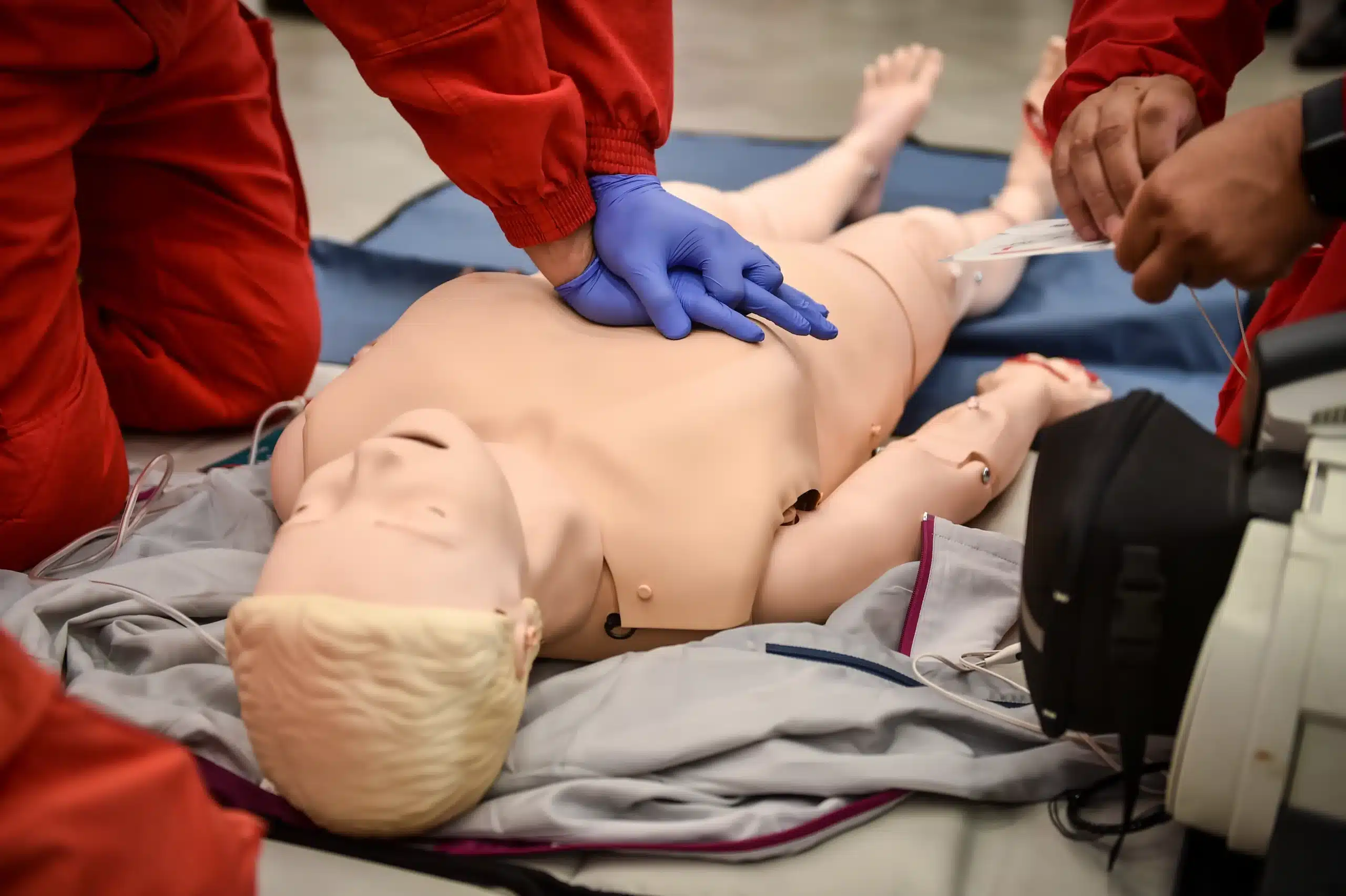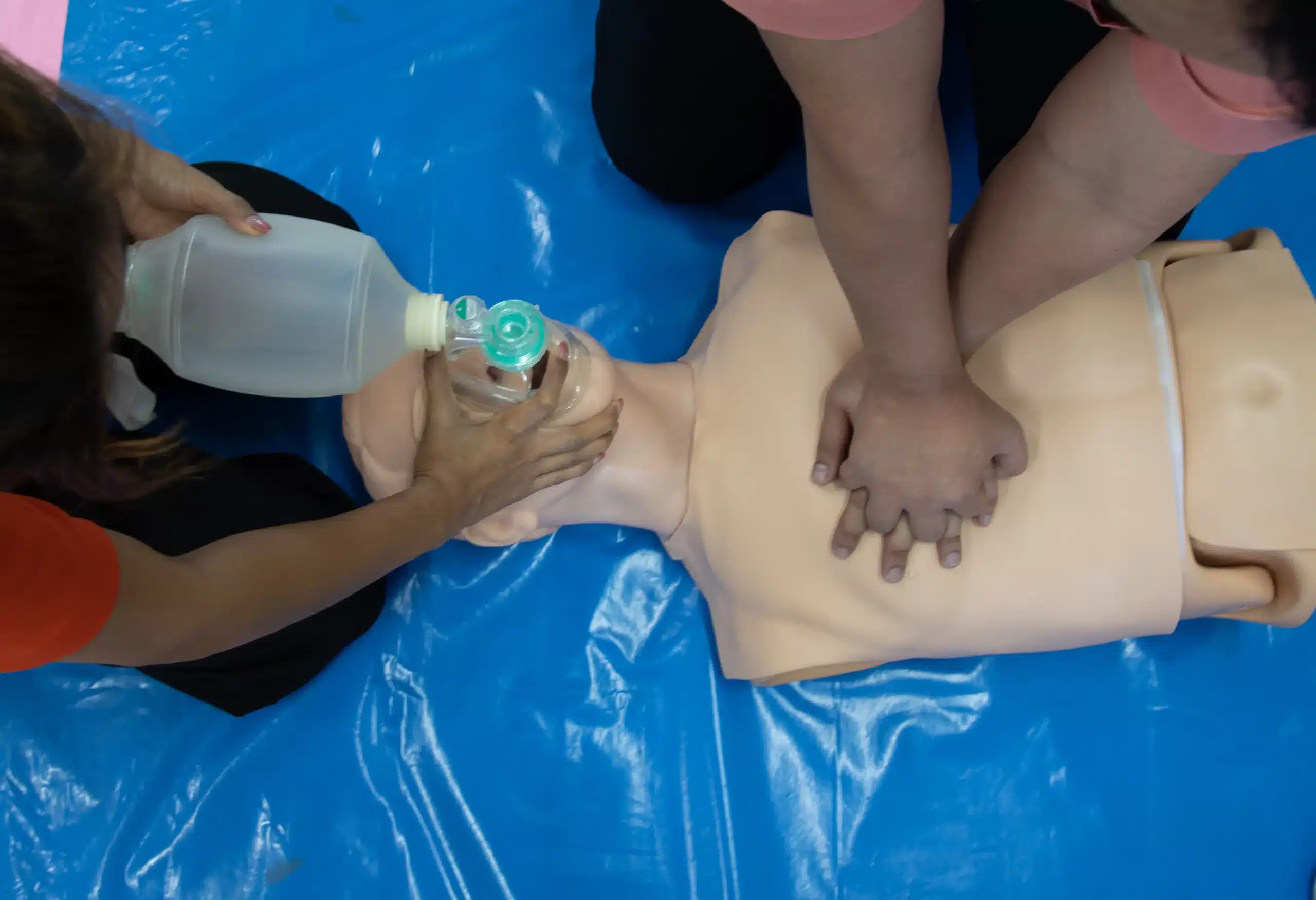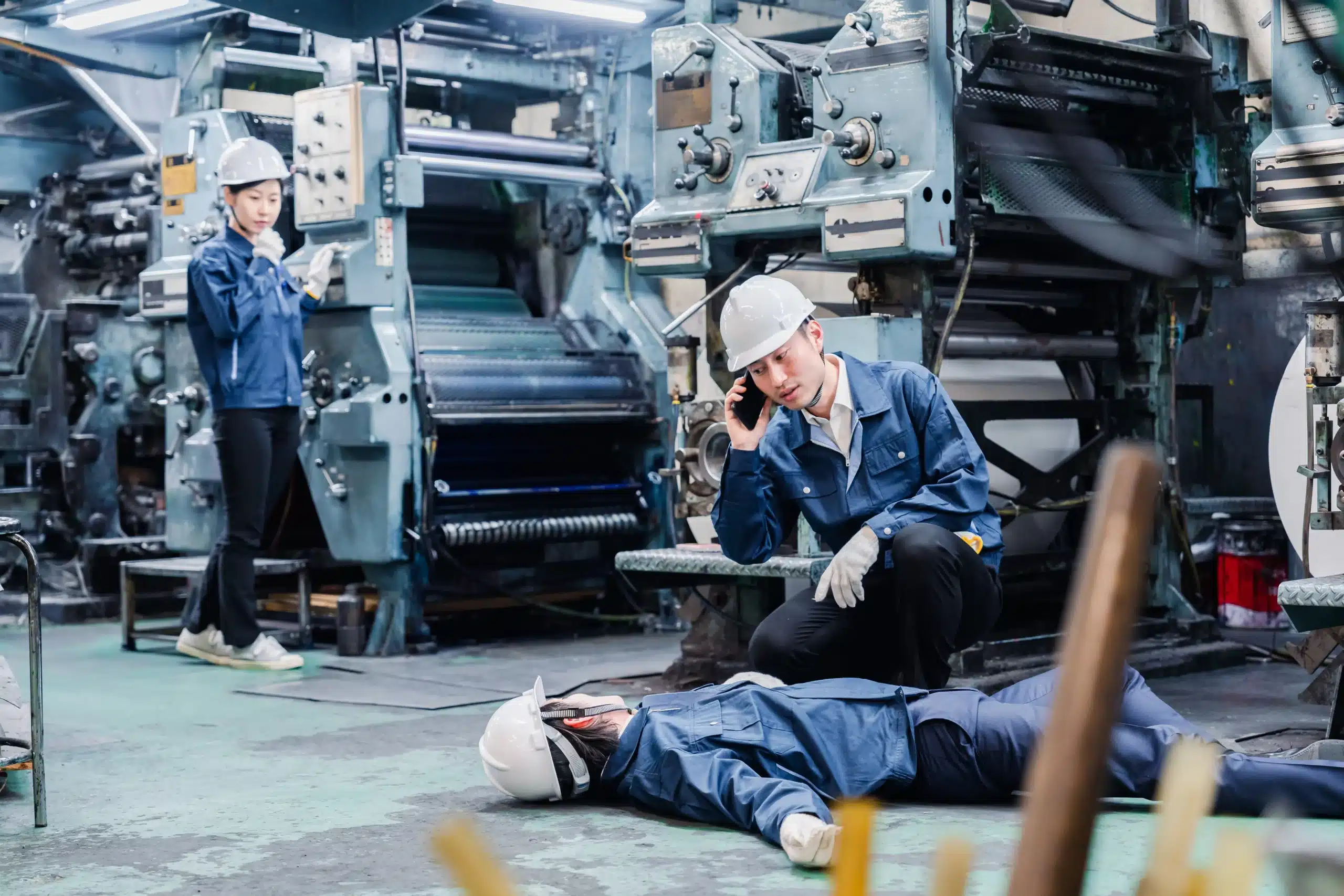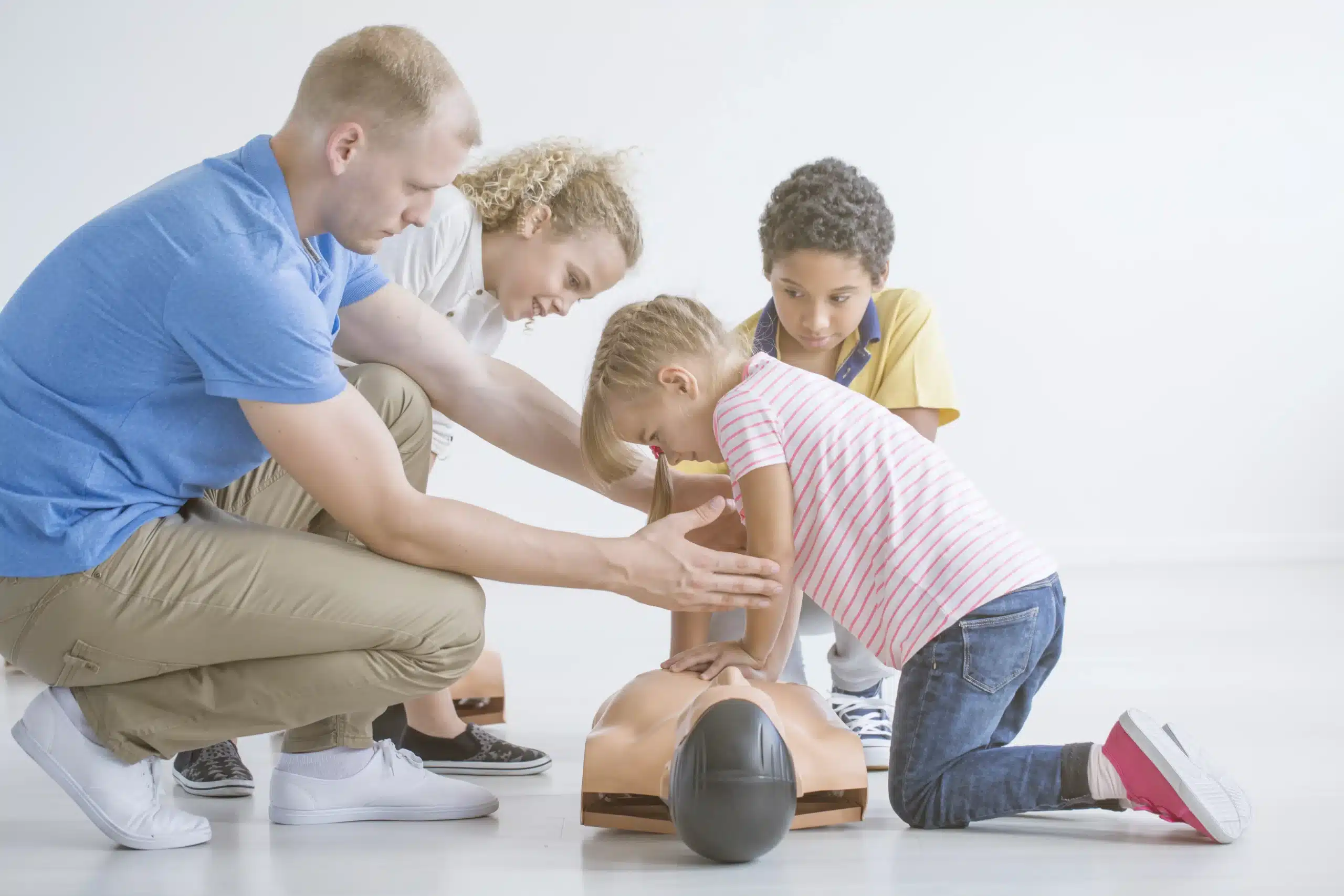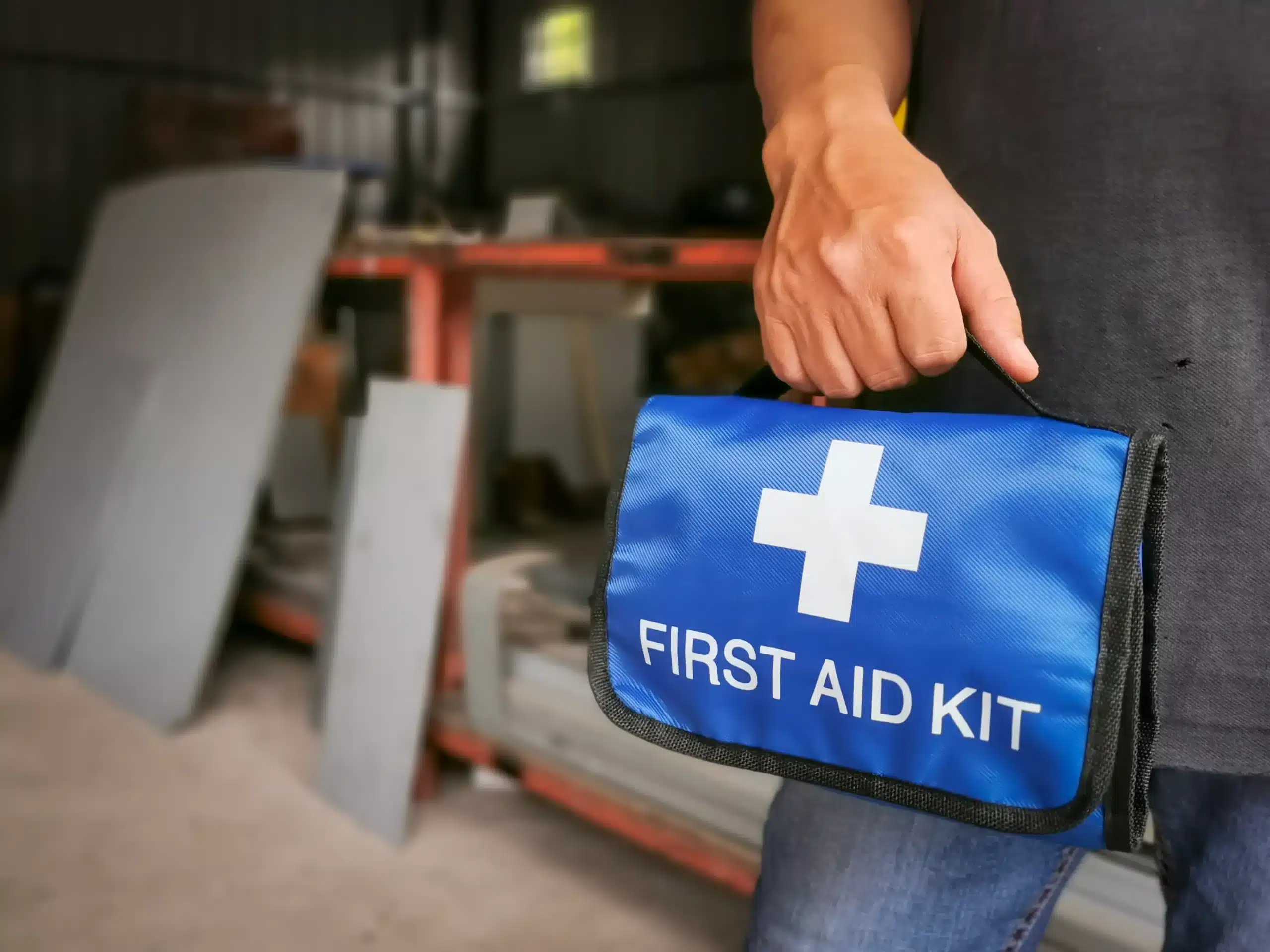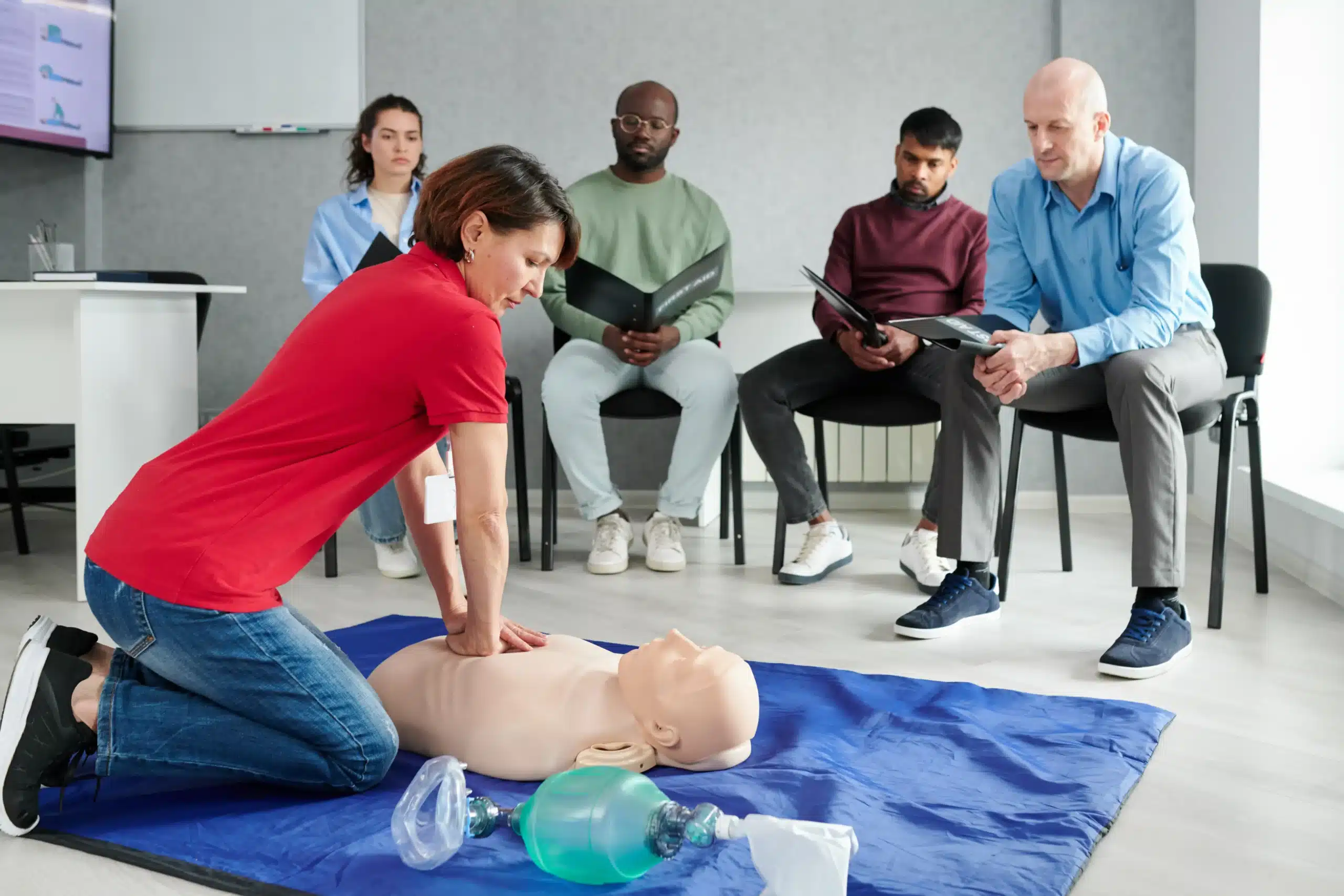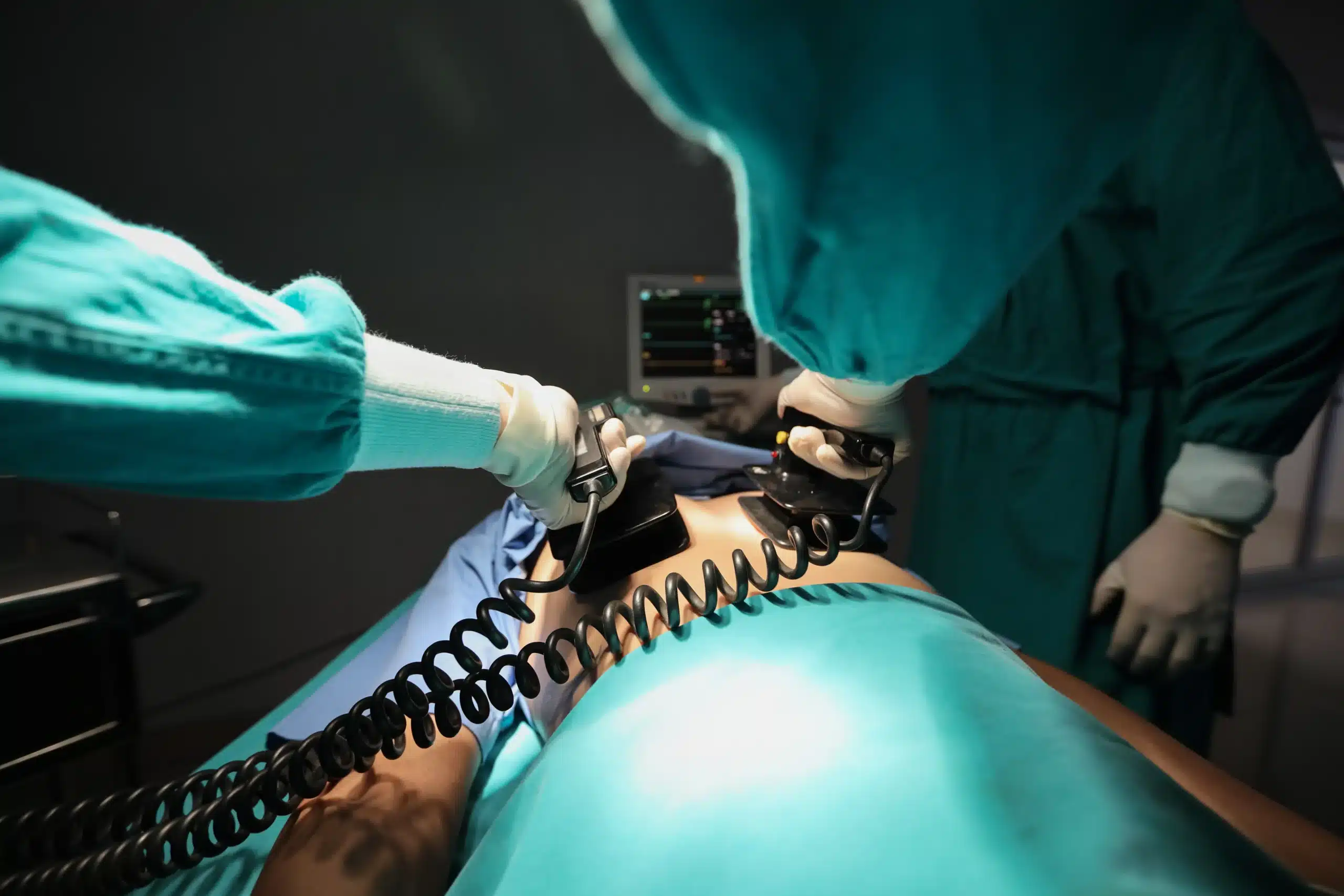Emergencies can happen anytime, anywhere. Would you know what to do? CPR classes in Sunnyvale give you the skills and confidence to respond effectively in critical situations. This comprehensive guide covers everything you need to know about CPR training in Sunnyvale, from course types and costs to schedules and the benefits of becoming certified. Whether you’re looking for basic CPR training or advanced life support certification, we’ll help you find the right course to meet your needs.
Key Takeaways
- CPR Training Empowers You: Equipping yourself with CPR and first-aid skills provides the confidence to act quickly during emergencies, potentially saving lives. Explore the various courses available to find the right fit for your needs.
- Find the Perfect CPR Class: Consider factors like your profession, schedule, and desired certification level when selecting a CPR class. Many options exist, from basic community courses to specialized training for healthcare providers.
- Maintain Your Skills: CPR certifications typically last two years. Stay prepared by scheduling refresher courses and keeping up-to-date with the latest guidelines to ensure your skills remain sharp.
What are CPR Classes in Sunnyvale?
CPR classes in Sunnyvale equip you with the skills to respond to medical emergencies. These courses cover essential life-saving techniques like chest compressions, rescue breaths, and how to recognize the signs of a cardiac arrest. Whether you’re a healthcare professional, a concerned parent, or simply someone who wants to be prepared, CPR training empowers you to make a difference. In Sunnyvale, you can find a variety of CPR and first-aid certification courses designed to meet different needs and schedules. These range from basic CPR training for the community to advanced courses like ACLS for healthcare providers.
CPR Course Types
Safety Training Seminars offers a comprehensive selection of American Heart Association (AHA) certified courses. You can choose from options like BLS, CPR, and PALS, ensuring there’s a course that aligns with your specific requirements. These courses are designed to meet diverse needs, from basic life support to specialized pediatric care. You’ll also find options for first-aid training, further enhancing your ability to respond to emergencies.
Why CPR Training Matters
Learning CPR is about more than just acquiring a certification; it’s about gaining the confidence to act in a critical situation. CPR and first-aid training empower you to provide immediate assistance to someone experiencing a medical emergency, potentially saving their life. These skills are invaluable for anyone, but especially crucial for those working with children or in high-risk environments. CPR training courses teach people how to help victims of Sudden Cardiac Arrest (SCA) while awaiting professional medical help. This immediate action can significantly improve the chances of survival. Consider taking a CPR class to become an active and prepared member of your community.
CPR Myths Debunked
One common misconception is that online-only CPR certifications are sufficient. However, it’s important to know that major certifying organizations like the AHA do not accept fully online CPR training for official certification. Hands-on practice and in-person evaluation are essential components of credible CPR training. This ensures you develop the muscle memory and practical skills necessary to perform CPR effectively under pressure. So, while online resources can be helpful supplements, they shouldn’t replace in-person instruction. For legitimate and recognized certification, choose a program that includes hands-on training and skills assessment. Safety Training Seminars offers the RQI program for healthcare professionals seeking convenient skills validation and CPR card renewal. They also offer a low price guarantee for their courses. If you’re looking for ways to reduce the cost of training, consider signing up with a group to take advantage of group discounts.
Find CPR Classes in Sunnyvale
Finding the right CPR class in Sunnyvale can feel overwhelming, but several reputable organizations offer comprehensive training. Here’s a breakdown of where you can find CPR certification in the area:
Safety Training Seminars
Safety Training Seminars provides a variety of American Heart Association (AHA) certified courses, including CPR, Basic Life Support (BLS), Advanced Cardiovascular Life Support (ACLS), and Pediatric Advanced Life Support (PALS). They focus on delivering high-quality, accessible training and offer group discounts to make their courses even more affordable. For more information, explore their BLS course and ACLS training.
American Red Cross
The American Red Cross is a well-known provider of CPR and first aid training. They offer a blend of online and in-person classes, making it easier to fit training into your schedule. Find a Red Cross course near you.
Hospitals & Community Centers
Local hospitals and community centers often host CPR training sessions. These classes can be a great way to learn lifesaving skills and connect with your community. Contact hospitals and community centers in Sunnyvale, Santa Clara, and San Jose to learn about upcoming classes.
Santa Clara County Fire Department
The Santa Clara County Fire Department (SCCFD) offers several CPR and AED training options, including Hands-Only CPR/AED training and comprehensive CPR/AED courses. They also provide blended learning opportunities, combining online coursework with in-person skills sessions. Learn more about SCCFD CPR training.
CPR Class Costs & Schedules
Finding the right CPR class often involves balancing cost, convenience, and the type of certification you need. Let’s break down what you can expect regarding CPR class pricing and scheduling in Sunnyvale.
Course Pricing
CPR class costs vary depending on the course type and training provider. For instance, the American Heart Association (AHA) Heartsaver® CPR/AED Blended Learning course, which combines online coursework with a 4-hour in-person skills session, is often priced around $65 in Sunnyvale. More advanced courses like BLS, ACLS, and PALS for healthcare providers typically have higher price points. Check with specific providers like Safety Training Seminars for their latest pricing and courses. They’re known for offering competitive rates and a low price guarantee in Santa Clara County.
Group Discounts & Offers
If you’re training with a group, look for providers that offer discounts. This can be a great way to make training more affordable for workplaces, community groups, or even a group of friends. Safety Training Seminars offers group discounts on CPR and first-aid training, making it a cost-effective option for those organizing training for multiple people. Reach out to training centers directly to inquire about group rates and minimum participant requirements.
Flexible Scheduling
Balancing work, family, and other commitments can make finding time for a CPR class challenging. Fortunately, many CPR training providers in Sunnyvale understand this and offer flexible scheduling options. Safety Training Seminars, for example, provides a range of courses accommodating various schedules. You can often find weekend and evening classes, as well as weekday options, making it easier to fit training into your busy life. Consider exploring their RQI program as well for healthcare professionals seeking flexible renewal options.
Online vs. In-Person
CPR training is available in both online and in-person formats. Online courses offer convenience and flexibility, allowing you to complete the cognitive portion of the training at your own pace. However, in-person training provides essential hands-on practice and feedback from certified instructors. Blended learning, which combines online learning with an in-person skills session, is a popular choice, offering the best of both worlds. Consider your learning style and schedule when deciding which format is right for you. You can explore various CPR and first aid courses in Sunnyvale to find the best fit for your needs.
What Happens in a Sunnyvale CPR Class?
Curious about what to expect? Here’s a peek into a typical CPR class at Safety Training Seminars in Sunnyvale. We’ll cover the basics of course structure, hands-on training, and specialized skills like BLS, ACLS, and PALS.
Course Length & Structure
Safety Training Seminars offers a variety of American Heart Association (AHA) certified courses, from basic CPR to advanced life support. The class length and content will vary depending on the course you choose—CPR, Basic Life Support (BLS), Advanced Cardiovascular Life Support (ACLS), or Pediatric Advanced Life Support (PALS). Classes typically combine interactive lectures, videos, and demonstrations with hands-on practice. This blended learning style helps you absorb information effectively and build confidence. Check our course catalog for details on each class.
Hands-on Practice & Equipment
Hands-on practice is key to effective CPR training. At Safety Training Seminars, we use advanced mannequins equipped with feedback devices. These tools provide real-time feedback on your compressions and breaths, helping you refine your technique and master proper CPR skills. This interactive approach keeps students engaged and motivated to improve their performance. It also simulates real-life scenarios, preparing you to act in an emergency.
BLS, ACLS, & PALS Skills
CPR focuses on chest compressions and rescue breaths, while BLS builds on those skills, adding airway management and AED use. It’s designed for healthcare providers and other professionals who may respond to medical emergencies. ACLS goes further, covering advanced life support techniques for treating cardiac arrest and other cardiovascular emergencies. PALS focuses on the specific needs of infants and children. Each course builds upon the previous level, adding more complex skills and knowledge.
Certification & Validity
After successfully completing your course, you’ll receive an American Heart Association (AHA) certification card, valid for two years. This nationally recognized certification shows your proficiency in CPR and other life-saving skills. Maintaining your certification is essential. Consider our RQI program for a convenient way to refresh your skills and stay current. We also offer group discounts for businesses and organizations training multiple employees.
Choose the Right CPR Class
Finding the right CPR class depends on your specific needs and career goals. Do you need basic CPR training or more advanced life support skills? Let’s break down the options so you can make the best choice.
Factors to Consider
First, consider why you’re taking a CPR class. Are you required to have certification for your job? Do you want to be prepared for emergencies at home? Different situations call for different levels of training. Safety Training Seminars offers a range of American Heart Association (AHA) certified courses, including CPR, Basic Life Support (BLS), Advanced Cardiovascular Life Support (ACLS), and Pediatric Advanced Life Support (PALS). This variety means you can find the perfect fit, whether you’re a parent, a teacher, or a healthcare provider.
Classes for Specific Professions
Some professions require specialized training. Healthcare professionals, for example, often need ACLS certification, while childcare providers might need specific training in pediatric first aid and CPR. Safety Training Seminars offers courses tailored to these professions, covering the specific scenarios and challenges these individuals might face. This focused approach ensures you gain the practical skills you need for your workplace. We also offer group discounts for workplaces looking to certify multiple staff members; learn more about our group discount options.
Blended Learning
If you have a busy schedule, blended learning might be a good fit. The AHA Heartsaver® CPR/AED Blended Learning course combines online learning with a shorter, in-person skills session. This format lets you learn the basics at your own pace, then practice your hands-on skills with a certified instructor. It’s a flexible way to get certified. Explore our BLS course options to learn more about blended learning.
Certification Requirements
After successfully completing your CPR course with Safety Training Seminars, you’ll receive an AHA certification card. This nationally recognized certification is valid for two years and is often a prerequisite for many jobs in healthcare, education, and other fields. It’s a valuable credential to have, demonstrating your commitment to safety and preparedness. We also offer RQI programs for healthcare professionals needing to renew their certifications. Our low price guarantee ensures you’re getting the best value for your training in Santa Clara County.
Benefits of CPR Training
Learning CPR offers significant advantages, from personal and professional growth to positive community impact. It empowers you with the skills and confidence to act in emergencies, potentially saving lives.
Personal & Professional Advantages
CPR certification is a valuable asset, both personally and professionally. Knowing you can respond effectively in a crisis provides peace of mind in your daily life, whether at home, work, or in your community. Professionally, CPR and first-aid training can also fulfill licensing requirements for various professions. Safety Training Seminars offers a range of American Heart Association (AHA) certified courses, including CPR, BLS, ACLS, and PALS, to meet your specific needs.
Community Impact
CPR training creates a ripple effect of positive change within communities. When more people are trained, the chances of a bystander knowing CPR during a medical emergency increase dramatically. This can significantly reduce response times and improve survival outcomes. Community involvement in CPR training strengthens the network of potential lifesavers, creating a safer environment for everyone.
Lifesaving Skills & Confidence
Beyond the technical skills, CPR training instills confidence and empowers individuals to act decisively under pressure. Studies show that using training mannequins with feedback mechanisms enhances the learning process and builds proficiency. This hands-on experience, combined with the knowledge gained in the course, equips you with the skills and the assurance to make a real difference in a life-or-death situation. Knowing how to perform CPR effectively can transform bystanders into immediate responders, bridging the gap until professional medical help arrives.
Get Started with CPR Training
So, you’re ready to learn CPR? Fantastic! Knowing how to respond to a medical emergency can truly make a difference. This section walks you through the steps to begin your training.
Enroll in a CPR Class
Finding the right CPR class is the first step. Safety Training Seminars offers a variety of American Heart Association (AHA) certified courses, from basic CPR and First Aid to more advanced certifications like Basic Life Support (BLS) and Advanced Cardiovascular Life Support (ACLS). We also offer Pediatric Advanced Life Support (PALS) along with specialized courses such as the RQI program for healthcare professionals and the EMSA Child Care Health & Safety program. Browse our website to find the course that best suits your needs.
Prepare for Your First Class
Before your first class, check if your chosen course has any prerequisites. Some advanced courses might require existing certifications. It’s also a good idea to wear comfortable clothing suitable for hands-on practice. Don’t worry about bringing equipment—we provide everything you’ll need in class. If you’re learning with a group, consider our group discounts. These discounts make training more affordable for teams, community groups, or businesses.
Maintain Your Certification
After completing your CPR course with Safety Training Seminars, you’ll receive an American Heart Association (AHA) certification card valid for two years. Mark your calendar to remember your renewal date. Staying current with your CPR skills ensures you’re always prepared to help in an emergency. We offer refresher courses to help you easily renew your certification.
Continuing Education
CPR techniques and guidelines can change, so ongoing learning is important. Consider subscribing to newsletters or following reputable organizations like the AHA to stay updated on the latest recommendations. Incorporating online learning options, such as online renewal courses, can make staying current more convenient, especially for busy professionals. This flexibility helps you maintain your skills and confidence as a first responder.
Related Articles
- American Red Cross Sunnyvale: Your Guide to Services & Volunteering – Sunnyvale CPR Classes
- Online CPR Classes in Sunnyvale: A Complete Guide
- CPR Classes in San Jose: Find the Right Course for You – Sunnyvale CPR Classes
- Debunking Common CPR Myths
- CPR Certification in San Jose: A Practical Guide – Sunnyvale CPR Classes
Frequently Asked Questions
What is the difference between CPR and BLS?
CPR focuses on chest compressions and rescue breaths for anyone who has stopped breathing or has no pulse. BLS builds upon those core CPR skills, adding techniques like using an AED and managing a blocked airway. It’s designed for healthcare providers and other professionals who might respond to medical emergencies. Think of BLS as a more comprehensive approach to life support.
How long is a CPR certification valid?
CPR certifications from Safety Training Seminars, like those offered by the American Heart Association, are typically valid for two years. It’s important to renew your certification before it expires to maintain your skills and ensure you’re prepared to respond effectively in an emergency.
What if I have a busy schedule? Are there flexible class options?
Yes, absolutely! Many CPR training providers understand busy schedules and offer various class times, including evenings and weekends. Some also offer blended learning, which combines online coursework with a shorter, in-person skills session. This allows you to learn the material at your own pace and then practice your skills with an instructor.
Why should I choose Safety Training Seminars for my CPR training?
Safety Training Seminars offers high-quality, American Heart Association (AHA) certified courses in Sunnyvale. They are known for their competitive pricing, a low-price guarantee in Santa Clara County, and group discounts. They provide a variety of courses, from basic CPR to advanced life support, ensuring there’s a class that fits your specific needs.
What if I’m nervous about the hands-on portion of the class?
It’s completely normal to feel a little nervous about the hands-on part. The instructors at Safety Training Seminars create a supportive and encouraging learning environment. They use advanced training mannequins with feedback devices, which helps you refine your technique and build confidence in your abilities. The practice scenarios are designed to prepare you for real-life situations, so you’ll feel more comfortable and prepared to act in an emergency.
